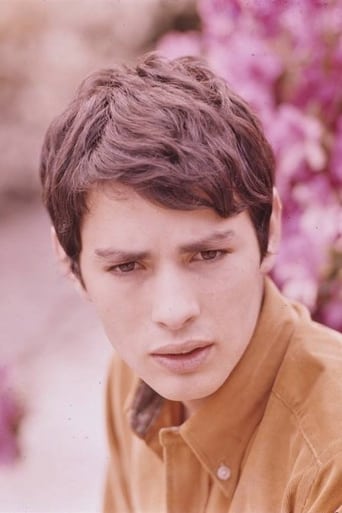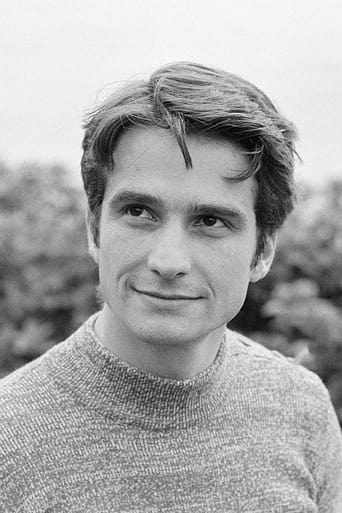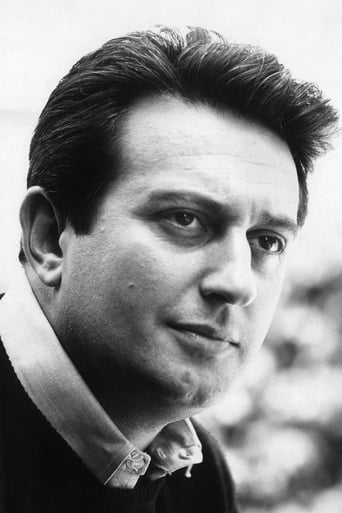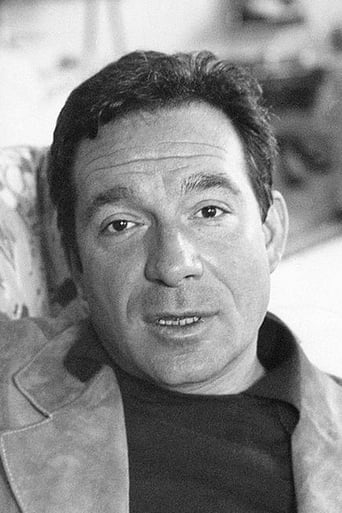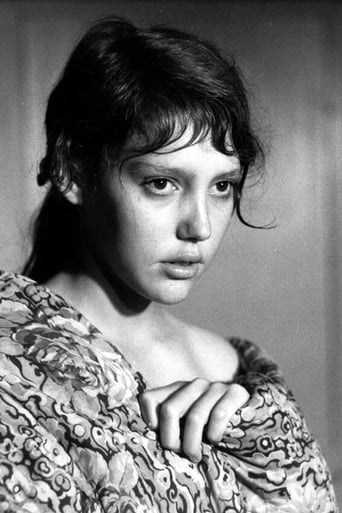Jeanskynebu
the audience applauded
Onlinewsma
Absolutely Brilliant!
Voxitype
Good films always raise compelling questions, whether the format is fiction or documentary fact.
Isbel
A terrific literary drama and character piece that shows how the process of creating art can be seen differently by those doing it and those looking at it from the outside.
chaos-rampant
I thought I was going to be confronted with minor Pasolini here. I was wrong. The same caution applies here though for casual viewers. With Pasolini we come to the foot of a cave where a sage is rumored to live, we can either turn back because there's no ornate ceremony, go back to where we can be told riveting stories about heroes wrestling fate; or sit and listen (not all of it may be intelligible), enter and divine vision.It opens with young intellectuals in a lush villa ruminating on their exasperations like out of Godard, from the time when revolutions were felt to be afoot. Oh the cause may be worthy in Pasolini's eyes, most likely is; but he makes it a point to show the modern self secluded from it in idle comfort, obsessed with analyzing himself in the scheme of narratives, dissatisfied, full of unrequited cravings and contradictions.In a separate medieval story we see man as only one more beast of prey alone in the wilderness, reduced to eating a butterfly to stave his insatiable hunger. We see what lurks behind that civilized self that always expects to be pleased, or better, all that had to transpire for endless time in the wilds. It's important here to see both the contrast and the continuity. The cruel nature in man as nature.And then in a breathtaking scene we're sent scurrying through windswept volcanic rock to see the human beast confronting itself in the crossroads, someone else much like him, alone and wary. There are few scenes more primal than this in cinema.Back in the modern portion, the same meeting between rivals takes place now with a lot of coy evasion, irony and duplicity, in a palace instead of the wild, over drinks. We see how human structures in place foster collaboration in the end; but it's a corporate one for profit that puts the beast in fine clothes, changes his face even, but leaves the hunger intact.Pasolini gives us the same barbs about modern life as he has elsewhere, relishing the opportunity, but he's not a sweeping fool; in the medieval portion he makes it a point to show that it's civilized structures, church and army, that go out in the wild to punish wrongdoing, install a semblance of order.We could be talking for days about what he has woven here. Sin that you control and sin that you don't. Law as necessary civilization. Bartering as control over the narrative (pigsty / WWII in the film). Love that you provide for versus the abstract calling from inmost soul.So okay, his camera seems sloppy from afar; he wants it to be you who has the chance encounter in these wilds instead of something bled of its reality on a lavish stage, wants it to be primal, madness the gods whisper to you. You'll see near the end some marvelously elliptic narrative as he conjures visions, no accident of sloppiness there; Pasolini is once more anticipating Malick.And he's aghast at the base nature he sees in him and things, impurity weighs him down; the whole film says, I have these things gnawing inside of me that I'll pay the price for even if I didn't put them there myself. Pasolini at his rawest makes the rocks crack open.The most riveting thing about it is that we have this seer in the wild of soul, who can bring vision back. He is the one who can't stay for love because something more abstract calls his name. He is the one who strays in the pigsty at nights, who has sinned in the wilds, ate the flesh.
RobertF87
This is one of the strangest works of Italian writer-director Pier Paolo Pasolini. It interweaves two story lines: The first, almost dialogue- free, tale takes place in an unknown volcanic landscape at an unspecified historical period and involves a young cannibal who leads a band that rapes and murders the local populace. The second tale is set in 1967 Germany and involves the son of a wealthy industrialist who is used as a pawn in a power game between his father and a business rival.It's well-made with several striking images, but it is very slow, very obscure and challenging. It is a bleakly savage satire on human nature, which will certainly not appeal to everyone. In fact it's a film that is easy to admire, but hard to like.It is certainly a powerful work of art, but certainly don't expect to enjoy it.
Rodrigo Amaro
"Porcile" is fine if you have the patience and the will to endure its lost and bizarre images or its strange deviate messages. Reactions about it will be mixed, rarely reaching some certainty, but the one that's definitely is that this is one of weakest films ever directed by Pier Paolo Pasolini. It's too pretentious, looks like his own version of Godard's "Week End" but less brutal, less gross yet more confusing in its speech. Both films deal with world going to its ending, total destruction all around and all hope lost, and Socialism seems to be the good alternative for our better sake. The directors of both films mixed their political speech in the middle of the controversial and shocking images.Two stories form the whole: 1) one young man (Pierre Clementi) who has killed his parents and ate their flesh walks around from village to village after being sentenced to perish in the vast desert. The only thing he'll be able to do is to kill whoever show up on his way and then eat them too. That's the story of the young cannibal, marvelously presented without words (he only has one spoken line repeated towards the ending). Beautiful cinematography, scary and thrilling sequences in it. 2) this story, very talky and quite messy brings Jean-Pierre Léaud (who was also in "Week End") as the son of an German industrialist who can't connect with people, preferring the company of the pigs ("Porcile" translates to "Pigsty"). He tries some involvement with a girl (Anne Wiazemsky) but with no luck. And there's his father (Alberto Lionello) business deals with a former Nazi of name Herdhitze (Ugo Tognazzi) also businessman but a rival of his, who hasn't aged through the war years after successful plastic surgeries. Foggy speeches about life, politics, mankind are dissolved into this other story and it's very hard to form a whole idea. They're apart in time but what they have in common? World going to an end, the destruction and corruption of societies, with everything out of control. Those are recurring themes in Pasolini works ("Teorema", "Salò" just to quote a few) but in here there isn't much going on to make them feel useful for all of us. This is a case that might look better in a book/screenplay/written work than filmed. The experience is distractive, confusing, rarely captivating even with the two known main stars, who had their voices strangely dubbed in Italian (I have my doubts about Pierre, I believe he really learned his lines in the other language). I like the film even though I can't connect with much of what's shown in it. The cannibal story is interesting; the one about the industrialist's son isn't all that much. The final result is chaos. Chaos in this problematic world that doesn't seem to get better. Well, at least in those predictions the master wasn't all that wrong. Enjoyable but unsustainable for more than one view. 6/10
cram1010
I only want to say which connectivity I think I found between the two stories... I don't know if it's what Pasolini wanted to say (if he wanted to say anything) but it's just a possibility...I think it's clear that Julian, the son of the former nazi, has that personality for two reasons: he is very intelligent and he's father is the kind of person he hates more in the world; but it's his father (That's very similar in the novel "Gracias por el fuego", from Mario Benedetti, in Spanish). Julian is very afraid of knowing himself, because it means hate his father. Julian is a socialist person (he has his 50% revolutionary slept, but he has it), and his father is the main guilts of the social injustice in his closest world. As well, he thinks he can't have any horizontal relationship with any person in the world, because he thinks he's different, maybe better, or at less more intelligent...The other story represents what Julian should have done, for Pasolini, to find the happiness. "I killed my father, I ate human flesh, and I quiver with joy.". The only way he could have to be himself was killing his own father, the former nazi (again like "Gracias por el fuego"), and to look down of all the people (represented like eating human flesh). Then he would started to quiver with joy... but, for me, in a fake happiness resulted from a failure...


